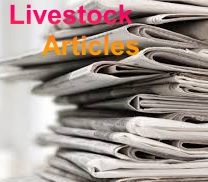South African Pork Producers Organisation
Pork producers were initially affiliated with the Red Meat Producers’ Organisation (RPO), but broke away and established the South African Pork Producers’ Organisation (SAPPO) in 1993 to better represent and address their needs.
There were numerous reasons for the break-up, but the unhappiness was rooted in the huge difference between the risks as well as business and production systems of pig producers in comparison with sheep and cattle producers. Pig production, for one is much more capital intensive than sheep and cattle farming, as expensive housing is required for optimal production. And, where sheep and cattle are allowed to graze veld or planted pastures, pigs are actively fed. Disease threats were also totally different for these animals.
While the industry is relatively small in comparison with the sheep and cattle industries of South Africa, South African Pork Producers Organisation (SAPPO) has managed to get the buy-in of most pork producers in the country, allowing them to successfully navigate business and production threats, such as diseases and health concerns, and turning the South African pork industry into one of the most efficient in the world.
Most of the pork produced in South Africa is consumed locally, with imports needed to address shortfalls. It would be difficult for local producers to address this shortfall, because the imports primarily constitute ribs, which is in higher demand than some of the other cuts and pieces.
Services of SA Pork Producers Organisation
The South African Pork Producers’ Organisation (SAPPO) ensures the long term sustainability of pork producers through six key functions.
Firstly, South African Pork Producers' Organisation provides consumer assurance, which serves as guarantee that the pork sold through formal outlets are safe to eat and complies with certain food and safety as well as production standards in terms of the way pigs are raised and the impact of production on the environment.
Secondly, South African Pork Producers Organisation (SAPPO) actively promotes pork consumption through the generic marketing of pork to the benefit of all producers, whether they are members of the organisation or not. South Africa is not really a pork eating nation in comparison with some European countries, with consumption accounting for only 8% of the overall 62 kg per capita consumption of meat in the country.
SAPPO has managed to increase pork consumption by an average of 3,5% per year over the past decade up until 2018, while consumption in most other countries have remained stagnant. This was achieved by busting prejudices that have had a negative impact on pork consumption and the targeting of the growing middle class in marketing campaigns.
Consumption, nevertheless, suffered a knock after the listeria outbreak that started towards the end of 2018. SAPPO then played a leading role in allaying consumer fears, addressing misconceptions and re-establishing faith in the industry after the outbreak.
Thirdly, SAPPO helps to build business intelligence by collecting information and keeping primary producers informed about issues that might affect them. The information is collected across the value chain, to help farmers make well-informed production, sales and purchasing decisions.
The fourth function concerns research and development, with South African Pork Producers Organisation (SAPPO) working with other stakeholders and role-players to ensure producers have access to the latest technologies and production insights relevant to South Africa’s unique conditions.
The fifth function relates to corporate governance, aimed at ensuring members comply with required production and market regulations. The last function concerns business development and is aimed at helping producers grow their businesses and income.
Memberships of SA Pork Producers Organisation
SAPPO represents the needs and voice of pork producers in South Africa, so any primary producer – regardless of the size of their operation – is free to join them.
Operations at the South African Pork Producers' Organisation are funded by statutory levies charged per pig carcass at abattoirs. The organisation had 151 members in 2020. It serves South African pork producers by co-operating within organised agricultural fraternity and liaising with various organisations, role-players within the supply chain of the meat industry, the government and international interest groups.
South African Pork Producers' Organisation (SAPPO) is putting a lot of effort into farmer support, with a big focus on the upliftment and commercialisation of smallholder farmers, who produce roughly ten percent of the carcasses at abattoirs. The organisation employs eight full-time farm extension officers; who last year supported seventy smallholder farmers.
To keep track of what is happening on smallholder farms, improve traceability and better understand the issues and needs of smallholder farmers, the organisation in 2018 released an App that runs on the World of Pigs platform. The app allows the industry to better channel support by identifying places where support is needed and also the volumes of pork produced by this group, resulting in better market insights. Information is communicated to members via newsletter, the SAPPO website, the Porcus magazine, farmer days and symposiums.
SA Pork Producers Organisation Membership Benefits
South African Pork Producers Organisation (SAPPO) represents the voice of farmers when it comes to negotiations with government and other stakeholders and role-players across the supply chain.
As such, South African Pork Producers' Organisation (SAPPO) represents the interests of members in negotiations relating to imports and exports, tariffs, market negotiations, disease management and input and marketing costs.
South African Pork Producers' Organisation Members enjoy the benefits of generic marketing of pork meat, which has resulted in a significant increase in pork consumption thanks to consumer education, in-store tastings and promotions.
Along with other role-players and the Pig Veterinary Association, SAPPO has also d a Pig Welfare Code to ensure humane handling of pigs, Recommended Biosecurity measures to reduce the risk of diseases entering a farm, which could cause unnecessary suffering, as well as a compartmentalisation system, to ensure low risk producers are able to continue production if their farms are unaffected during infectious disease outbreaks.
SAPPO has also launched a Farm Assured accreditation, called Pork 360, to guarantee best practices and processes from farm to fork. Participating members are audited independently to ensure they comply with prescribed standards in terms of food safety, traceability, animal welfare, biosecurity and environmental stewardship.
Besides this, South African Pork Producers Organisation (SAPPO) members share in the benefits of the National Pig Health Monitoring Scheme, training material and are regularly exposed to overseas experts during farmers’ days, study groups and symposiums to keep them abreast of the latest international production and marketing trends.
Research is seen as one of the pillars of sustainable pork production, so SAPPO has a Research Portfolio Committee that identifies, initiates and ensures funding is invested in research that addresses the needs of producers. SAPPO, for example, has obtained the licence to conduct tests to identify the gene that causes porcine stress syndrome, which has a negative impact on meat quality.

.jpg)






